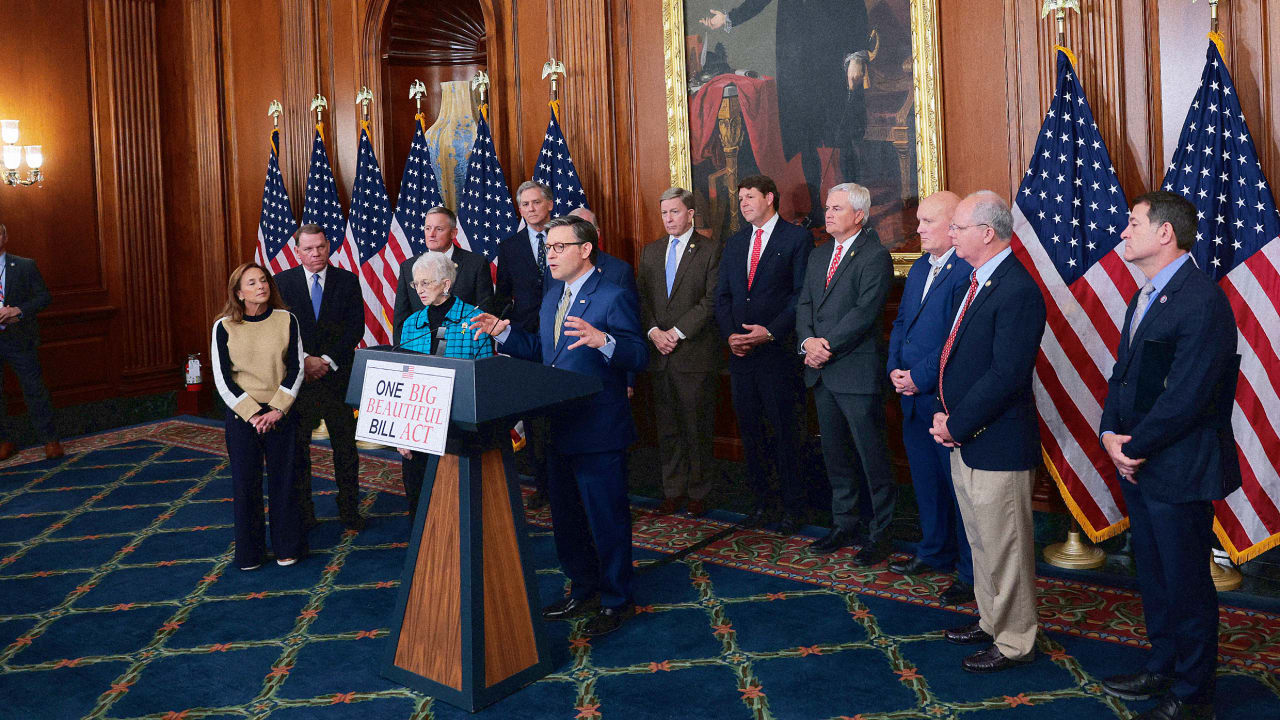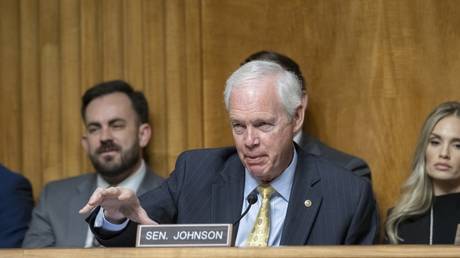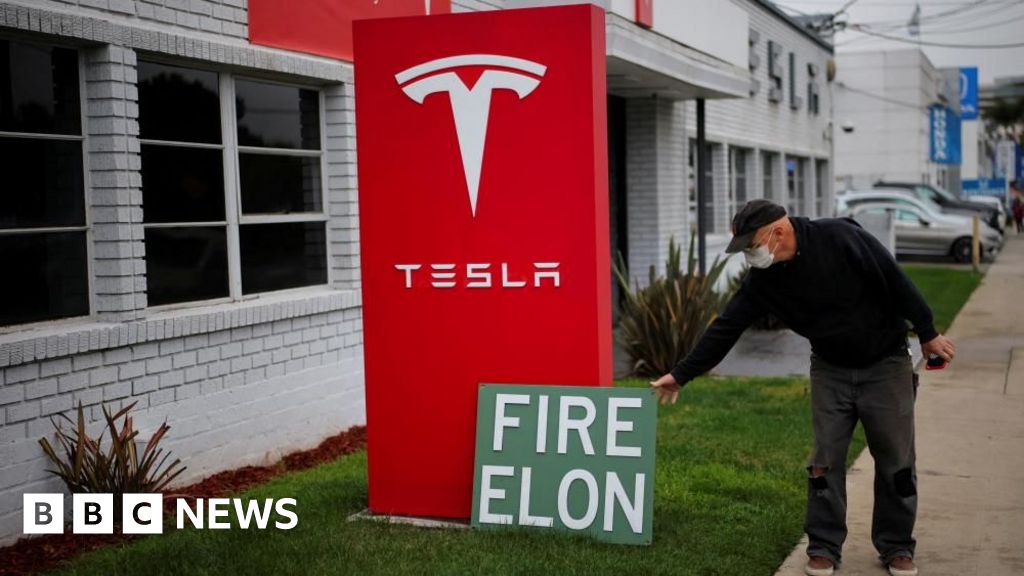House Republicans just gutted the IRA. What happened to all the supposed holdouts?

Early this morning, the House voted 215–214 to pass a sweeping budget reconciliation bill with provisions that include a cancellation or phaseout for just about everything that was in the Inflation Reduction Act.
The measure, which now heads to the Senate, is being described by clean energy and environmental groups as a monumental betrayal of the country that will cost jobs and increase electricity bills.
But during the floor debate overnight, the energy parts of the bill were an afterthought to higher priority issues for members of both parties, such as tax cuts, revisions to Medicaid, and a desire to support or oppose the agenda of President Donald Trump.
Two months ago, 21 House Republicans sent a letter to the chair of the House Ways & Means Committee about the need to preserve the IRA tax credits, warning against “premature credit phase outs or additional restrictive mechanisms.”
House leadership was able to assuage some of those concerns when the draft of the bill showed that tax credits for biofuels would be preserved, among other changes.
But some House Republicans still objected. Last week, 14 of the signers of the previous letter issued a joint statement affirming their support for the credits. This was a smaller number than the March letter, but it was more than enough to sink the bill if even a few of them held firm.
So how many of them ended up voting against the bill? Zero.
Rep. Andrew Garbarino (R-N.Y.) missed the vote, but had intended to vote for the bill. The other 13 people who issued the statement last week all voted “yes.”
Before the vote, I spoke with David Spence, a professor at the University of Texas at Austin, to try to get a sense of the factors that were most likely to influence each member.
“They’re feeling pressure to go along with whatever Trump wants and whatever the leadership wants,” he said. “What’s putting counterpressure on them is that for some of them that means giving up a lot of jobs and money” that came from the IRA. “And for others, it’s about how far they can be pushed away from their principles.”
The counterpressure turned out to be weak.
Spence is the author of Climate of Contempt: How to Rescue the U.S. Energy Transition from Voter Partisanship, a 2024 book that I wrote about last summer. He wrote a blog post this month describing the factors influencing how Congress may vote on IRA-related measures.
He was paying close attention to a debate within the debate between 38 Republicans who had signed a letter this month attesting to “the urgent need to fully repeal the Inflation Reduction Act,” and also the 21—later 14—who said they wanted at least some parts of the law to be preserved.
A brief aside about the merits of the bill: Energy researchers are describing it as an economic and environmental disaster. The think tank Energy Innovation said this week that the bill would lead to the loss of 830,000 jobs by 2030 and increase consumer energy costs by $16 billion in 2030. Any discussion of who voted for it in the House and who might in the Senate may sound like a parlor game, but the stakes are incredibly high when it comes to shaping the world of future generations.
Spence made a chart showing each of the members who signed the two letters, along with factors that may shape their views, such as the partisan lean of their districts and the extent of IRA projects there.
Of the 38 people calling for a full repeal, 28 represent districts with a Republican lean of at least 10 points, which means their district favored the GOP by at least 10 percentage points more than the country as a whole did in the 2024 general election, according to Cook Political Report. These members have a much higher risk of losing in a primary challenge from another Republican than of losing in a general election.
Among the 38 are some of the House’s most outspoken budget hawks, who are so committed to their ideology that they have been willing to go against the House leadership and the Trump administration on issues related to spending. Examples include Reps. Josh Brecheen of Oklahoma, Andrew Clyde of Georgia, and Ralph Norman of South Carolina.
Only 10 of the 38 have IRA-funded projects in their districts, based on data from E2, a clean energy business group. Among them is Norman, whose district has six such projects that have led to commitments for 1,933 jobs.
One of those projects, a solar panel plant planned by Silfab Solar of Canada, has been controversial. Some residents have said they are alarmed about chemicals that would be used to make solar equipment.
Norman said on Wednesday that his main concern is that he doesn’t like subsidies.
“Embracing an ‘all-of-the-above’ energy strategy is crucial, and solar plays a role in that mix,” Norman said in a statement. “But let me be clear—that does not mean we support endless subsidies. The real value of energy production lies in strengthening our infrastructure, streamlining permitting, and reducing our dependence on foreign suppliers. We need to rely on what works where it works, without burdening taxpayers to prop up any one industry.”
Based on the outcome, the House members who really hate the IRA were able to win the internal debate over those who wanted to preserve some parts of the law—and it wasn’t even close.
The final negotiations were more about making the bill palatable to budget hardliners, which involved making the IRA provisions even more onerous for energy companies and implementing faster phaseouts.
Among the potential holdouts that voted for the bill was Rep. Don Bacon (R-Neb.), who was re-elected despite his district favoring Democrats by a narrow margin in the presidential election. He was part of both the letter and the joint statement calling for tax credits to be maintained.
Others who said they supported tax credits come from heavily Republican districts that have major projects funded in part by the IRA. This includes Rep. Buddy Carter of Georgia, who has seven projects and 4,462 jobs in his district related to the law, and still voted for the bill.
“This is a once-in-a-generation bill that will unlock President Trump’s full domestic agenda, which Georgians voted for overwhelmingly back in November,” Carter said in a statement after the vote. “With the One, Big, Beautiful Bill Act we are unleashing our nation’s energy dominance, securing the border, putting more money back into hardworking Americans’ wallets, kicking illegal immigrants off Medicaid so that it is available for those who need it, and ending the waste, fraud, and abuse that risks sending our country into economic ruin.”
The larger lesson was that the power of partisanship overwhelmed just about everything else.
This gives credence to a view I hear a lot from grassroots environmental advocates: The only way to pass and maintain strong climate and energy policies is to elect Democrats because even the Republicans who care about those topics will be marginalized and ultimately run over by their leadership.
But this isn’t over yet. Four Senate Republicans have raised concerns about the phaseout of energy tax credits. If the Senate makes any changes, the House will need to vote again.
In the meantime, entire industries—including solar, wind, batteries, EVs, and energy efficiency—may need to throw out their business plans, scrap investments, and prepare for a challenging near future.
This article originally appeared on Inside Climate News. It is republished with permission. Sign up for their newsletter here.
What's Your Reaction?
 Like
0
Like
0
 Dislike
0
Dislike
0
 Love
0
Love
0
 Funny
0
Funny
0
 Angry
0
Angry
0
 Sad
0
Sad
0
 Wow
0
Wow
0




























































































